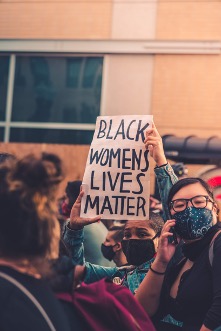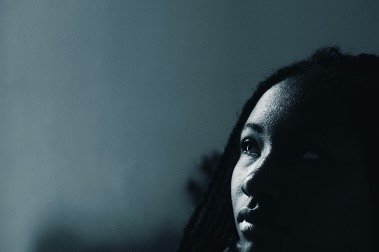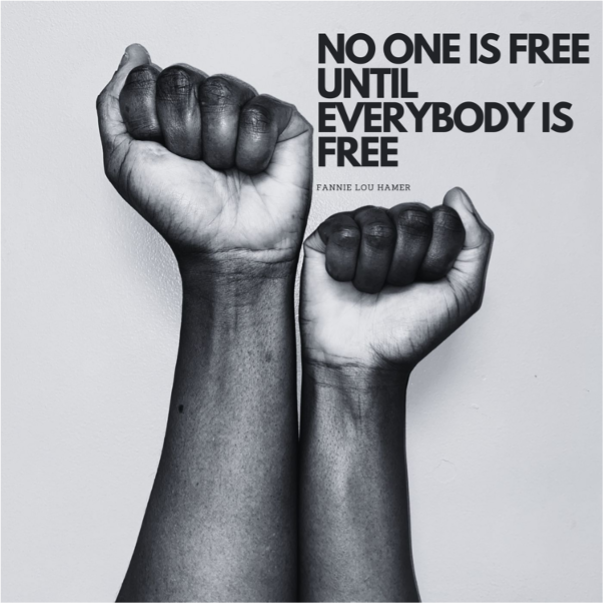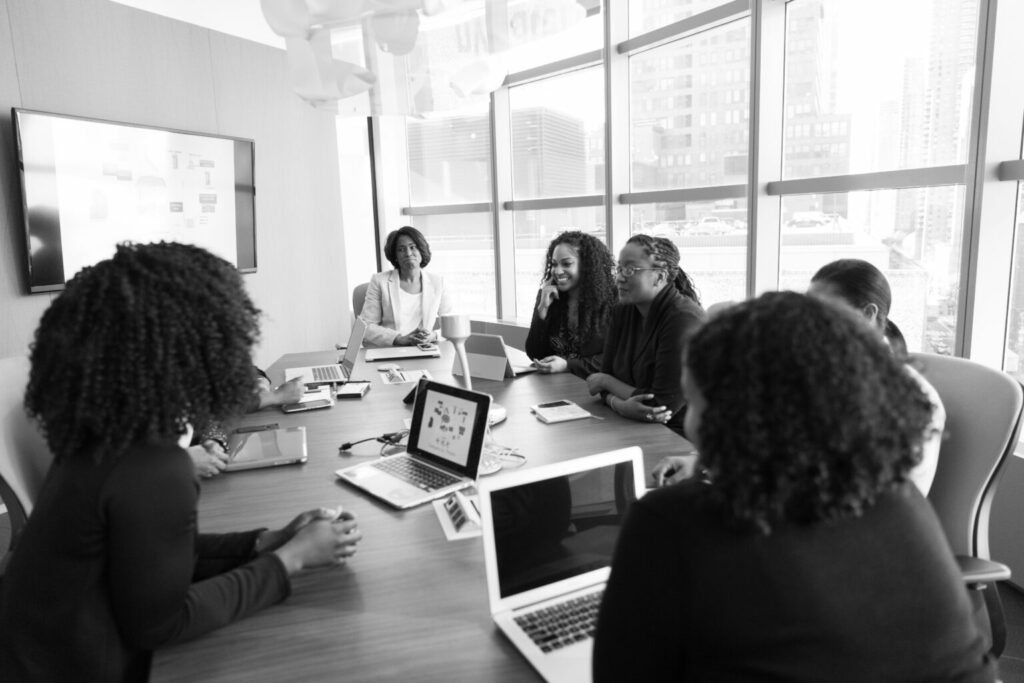On March 3rd 2021, the media reported the tragic death of Sarah Everard, who was abducted by a police officer whilst walking home in Clapham, south London. This caused outrage and anger amongst women across the country as the reality of women’s safety was brought into question. If the police are failing to protect us, then who will?
WARNING: This article contains graphic descriptions of real-life events which may be upsetting to some readers.
by Angelica Solomon

The outpour of frustration women experienced triggered thousands to gather to Reclaim These Streets at Sarah Everard’s vigil and protest gender-based violence, but these women were instead met with police brutality. As distressing scenes of police mishandling women circulated online, I understood that whilst this came as a shocking revelation to some, this was not a new phenomenon to me as a Black woman.
Black Brits have been raising awareness about the disturbing truth behind police violence in the UK long before Sarah Everard, but it took the tragic death of a white woman for us to finally shed light on the institution of policing. Police violence against women has been a long-lived experience and persists today, yet the countless number of stories on Black women brutally injured or killed at the hands of police has neither gained public interest nor the same level of indignation.
As distressing scenes of police mishandling women circulated online, I understood that whilst this came as a shocking revelation to some, this was not a new phenomenon to me as a Black woman.
The history of police violence against women can be captured by the fatal interaction’s Black women have routinely experienced in the UK. On the morning of Saturday 25th September 1985, Dorothy “Cherry” Groce was involved in a police shooting which left her paralysed from the chest down. The prevalence of police violence against Black women has been an ongoing struggle across generations and this continues to have a profound effect today.
In 2012, Sarah Reed died at the hands of police brutality when PC James Kiddie yanked Reed by the hair, pressed on her neck and repeatedly punched her in the head. Several months prior Sarah Everard, Kamyimsola Olatunjye, 28, was pinned to the ground with excessive force by six police officers as she shouted, “I can’t breathe, please stop!”

The horrific mistreatment of Black women by police shows how the Call to End Violence against Women and Girls in the UK is far from realised when Black women’s lives are treated with no value. Even in death, we witness the lack of empathy given to the atrocities committed against Black women and how our lives are considered insignificant. It was in Summer 2020 that two police officers were suspended for taking selfies next to the dead bodies of two sisters, Nicole Smallman (27) and Bibaa Henry (46) and sharing them in a WhatsApp group.
It was also the police who reported the death of the 21-year-old Blessing Olusegun as “non-suspicious” after discovering her body on a beach in East Sussex on September 18th 2020. Following these devastating events, the handling of cases by police officers reflects a complete disregard for the lives of Black women.
I cannot help but feel disappointed that at any given moment a woman who looks like me can experience any type of atrocity and the world will keep moving as normal.
I cannot help but feel disappointed that at any given moment a woman who looks like me can experience any type of atrocity and the world will keep moving as normal.
When I think about the demographic of women most affected by police violence and systemic racism, our fight continues to fall on deaf ears countless times. The activist group ‘Sisters Uncut,’ who have been campaigning against police violence since 2014, tell Dazed magazine in an interview that “Every day in the UK police perpetrate violence against Black and Brown people, trans, queer, gender non-conforming folks, sex workers, Gypsy, Roma, Traveller communities, and those with insecure immigration status,” yet this did not garner mainstream media’s attention until white women were affected.
The very existence of institutional racism in the police places the lives of Black women and women of colour at low value. Understanding how racism exists and is perpetuated in the UK is integral for capturing the reality of police distrust and inadequate support given to Black and Brown women who suffer domestic abuse in silence.
A 2019 report on Violence Against Women and Girls by the London Mayors office found that Black women and girls were disproportionately affected by domestic violence and sexual abuse. The shared struggle Black women face is telling of how the police repeatedly fail to protect us.

In 2015 an 11-year-old black girl was wrongfully arrested and charged for reporting she was raped by two men. Even though she had shown signs of sexual trauma, police failed to protect her on the basis that they believed she had filed a false report. Even when we are looking for protection against male violence, we are confronted by racialised gendered violence within the police force.
As we continue to oppose police violence against women, we must continue to take into account the lived experiences of Black women and what purpose the police serve. The criminal justice system is inherently flawed, and the need to rethink public safety has become paramount due to how the current form of policing is not built to protect and serve everyone equally.
Even when we are looking for protection against male violence, we are confronted by racialised gendered violence within the police force.
Whilst the magnitude of this problem will not be erased overnight, the reallocating of police funds can be the beginning of shifting our overreliance on an institution that has proven to be more harmful to marginalised groups and communities of colour.
The need to “defund” the police and invest in a better community support network at the grassroots should be a priority the government undertakes by ensuring underserved communities’ needs are met.
Rather than the UK government increasing police funding by £1.1 billion for 2020/21, more public sector spending should go towards better quality education, healthcare services, and employment.



A remarkable account of the type of discrimination women of colour face on a daily basis that seemingly goes unnoticed. More needs to be done to increase awareness and this article supports such effort. Thank you!
As a black women, born in the UK, and a law student in Scotland, it really hurts to know and see in real-time the time, dedication and resources used to fight for justice for Sarah and her family (which is absolutely needed in this day in age) did not consitute the same results for the women I have just read about. INTERSECTIONALITY IS A DISEASE – AND DUAL DISCRIMINATION NOW NEEDS TO BE ADDRESSED THROUGH LAW.
NICOLE SMALLMAN
BIBAA HENRY
SARAH REED
KAMYIMSOLA OLATUNJYE
BLESSING OLUSEGUN
SHUKRI ABDI
#SAYHERNAME